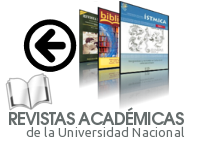Challenges of citizen education in Mexico, Costa Rica and Peru: an approach from teaching experience
DOI:
https://doi.org/10.15359/rp.29.4Keywords:
citizen education, narratives, teachers, challenges, neoliberalism, Social StudiesAbstract
This article presents an analysis of the experiences of three Latin American teachers belonging to Mexico, Costa Rica and Peru, based on the narratives of the subjects, an approach is made to the situation in citizenship education in the region, pointing out the problems and obstacles they present. The formal educational systems and the curricula of the various subjects related to academic citizenship education in Latin American countries when the objective set by the teachers is the formation of active and progressive critical citizenships in response to a context of growing authoritarianism and conservatism by Lastly, it is explained how these obstacles represent challenges that condition but do not fully determine their margin of action in educational spaces, thus highlighting pedagogical work as a possible agent of social transformation.
References
Apple, M. (2013). Creando educación democrática en tiempos neoliberales y neoconservadores. Praxis educativa, 17(2), 4. 27-35.
Barrenechea, C. A. (2014). Políticas educativas y el neoliberalismo en el Perú. Horizonte de la Ciencia, 4(6), 83-86.
Cavieres-Fernández, E. A. (2018). Epistemología y experiencia en Freire. Contribuciones a una metodología narrativa. Magis. Revista Internacional de Investigación en Educación, 11(22), 87-98.
Corzo, A. I., Duque, J., Medina, L. y Torres, S. (2011). El impacto de las políticas neoliberales en América Latina. Un análisis de la educación en Perú,
Colombia y México. Temas De Nuestra América Revista De Estudios Latinoaméricanos, 27(50), 189-221. https://www.revistas.una.ac.cr/index.php/tdna/article/view/5529
Dietz, G. y Mateos, L. (2011). Interculturalidad y educación intercultural en México. Un análisis de los discursos nacionales e internacionales en su impacto en los modelos educativos mexicanos. SEP-CGEIB.
González, D. (2020). La enseñanza de los estudios sociales en la era de la calidad educativa. Perspectivas, (20), 1-27. https://doi.org/10.15359/rp.20.2
Huaytalla, N. (2023). El bullying tras la pandemia originada por el COVID-19 en el Perú. Ius Et Praxis, 56(056), 61-80. https://doi.org/10.26439/iusetpraxis2023.n056.6006
Huertas Vilca, K. S., Cabos Villa, L., Durand Azcárate, L. A. y D’angelo Panizo, M. D. C. (2022). Modelo neoliberal en sistema educativo peruano: crisis y limitaciones en contexto de pandemia. Encuentros, (15), 352-365. http://encuentros.unermb.web.ve/index.php/encuentros/article/view/234/218
Ministerio de Educación Pública (MEP). (2009). Programa de estudio de Educación Cívica tercer ciclo de educación general básica y educación diversificada. San José, Costa Rica.
Navarrete, F. (2004). Las relaciones interétnicas en México. Universidad Nacional Autónoma de México.
Mariátegui, J. C. (2007). 7 ensayos de interpretación de la realidad peruana. Biblioteca Ayacucho.
Nussbaum, M. (2010). Sin fines de lucro. Por qué la democracia necesita de las humanidades. Buenos Aires: Katz editores.
Pagès, J. (2015). La educación democrática de la ciudadanía para el gobierno de la polis: retos, esperanzas y utopías. Revista Educación Y Pedagogía, 27(69-70), 55-65. https://revistas.udea.edu.co/index.php/revistaeyp/article/view/340189
Picoli, B. y Guilherme, A. (2021). La concepción neoliberal de la educación y sus impactos en el Sur Global: una nueva forma de imperialismo. Foro de Educación, 19(1), 199-222. https://doi.org/10.14516/fde.761
Piedra, N. (2001). Promotoras de cambios, protagonistas de luchas: cultura política de las mujeres en Costa Rica. Diálogos Revista Electrónica de Historia, 2(1), 0.
Rasskin, I. (2012). ¿Educación intercultural o asimilación cultural? Una reflexión crítica a partir de la enseñanza de “habilidades sociales” en la escuela secundaria. Tejuelo, monográfico 6, 47-63. http://hdl.handle.net/10662/9008
Toruño, C. (2010). Fundamentos curriculares de la ciudadanía en un estado neoliberal: el caso de Sistema Educativo Costarricense. Revista Electrónica Actualidades Investigativas en Educación, 10(2), 1-25. https://hdl.handle.net/10669/17072
Vázquez, G. (2015). La calidad de la educación: reformas educativas y control social en América Latina. Latinoamérica. Revista de Estudios Latinoamericanos, (60), 93-124.
Downloads
Published
How to Cite
Issue
Section
License

This work is licensed under a Creative Commons Attribution-NonCommercial-ShareAlike 4.0 International License.
Los autores que publican en esta revista están de acuerdo con los siguientes términos:
a) Los autores conservan los derechos de autor y garantizan a la revista el derecho de ser la primera publicación del trabajo bajo una Licencia Creative Commons Atribución-NoComercial-CompartirIgual 4.0 Internacional (https://creativecommons.org/licenses/by-nc-sa/4.0/) que permite a otros compartir el trabajo con un reconocimiento de la autoría del trabajo y la publicación inicial en esta revista (componente BY o atribución). Coincidente con la política de Acceso Abierto, no se podrán hacer usos comerciales de los contenidos publicados por esta revista (componente NC). Se permitirán las obras derivadas (remezcla, transformación o creación a partir de la obra original) siempre y cuando sean distribuidas bajo la misma licencia de la obra original (componente SA).
b) Los autores pueden establecer por separado acuerdos adicionales para la distribución no exclusiva de la versión original de la obra publicada en la revista (por ejemplo, situarlo en un repositorio institucional o publicarlo en un libro), siempre y cuando: a) sea reconocida la publicación original en esta revista (componente BY); b) no se haga uso del material de reuso con propósitos comerciales (componente NC); c) el material de reuso sea distribuido bajo la misma licencia de la obra original (componente SA).
c) Se permite y se anima a los autores a difundir sus trabajos electrónicamente (por ejemplo, en repositorios institucionales o en su propio sitio web) antes y durante el proceso de envío, ya que puede dar lugar a intercambios productivos, así como a una citación más temprana y mayor de los trabajos publicados (Véase The Effect of Open Access) (en inglés).




_11.55_.09_a_._m_._.png)
_1.34_.01_p_._m_._2.png)
_9.45_.02_p_._m_._.png)




_2.23_.09_p_._m_._.png)
_2.35_.17_p_._m_._.png)

